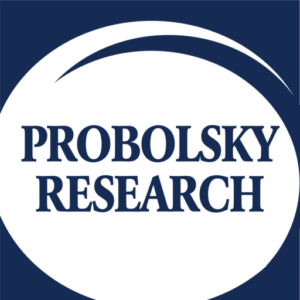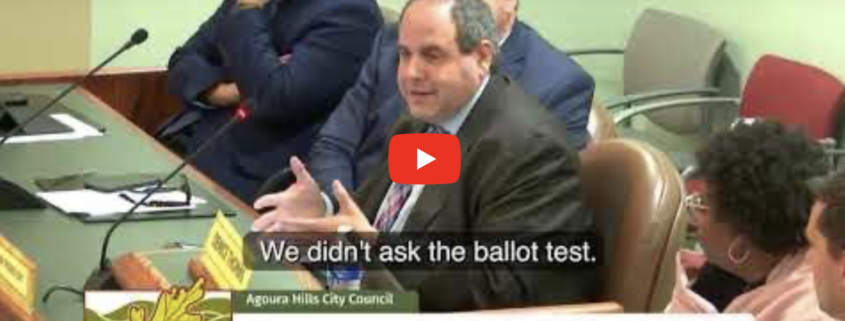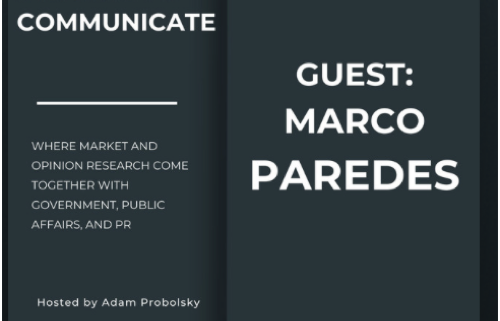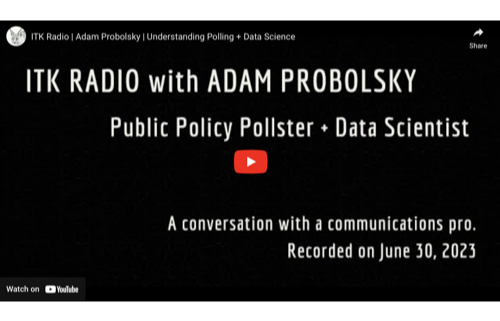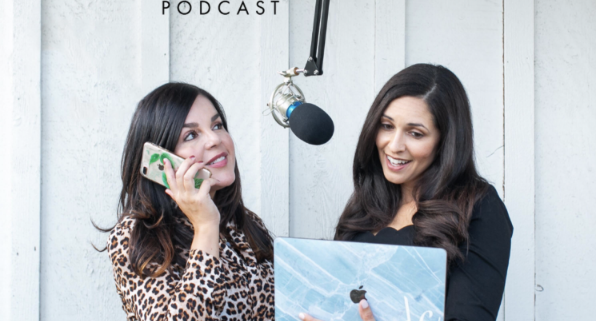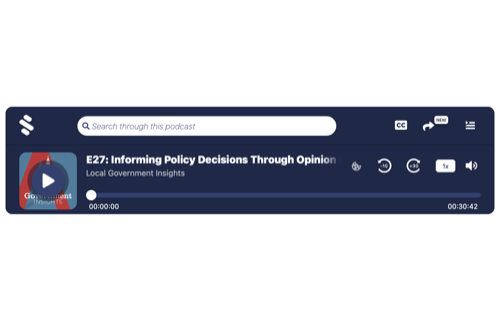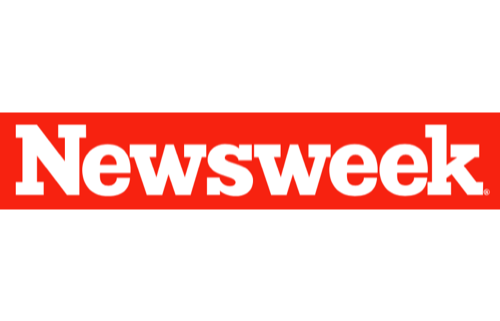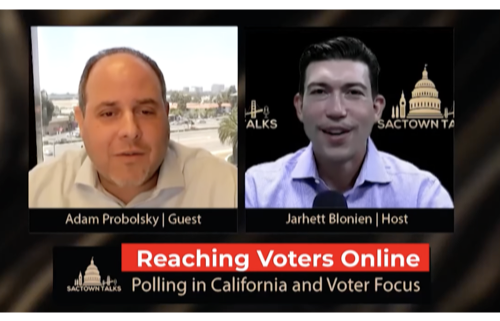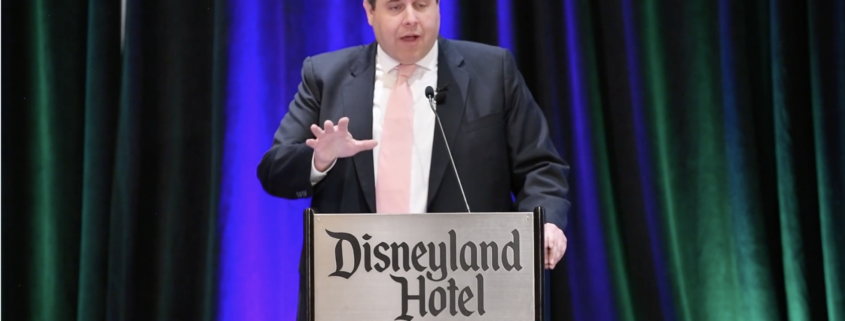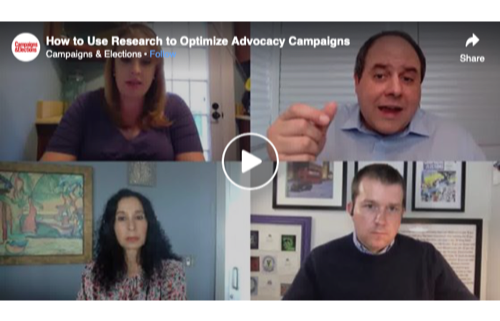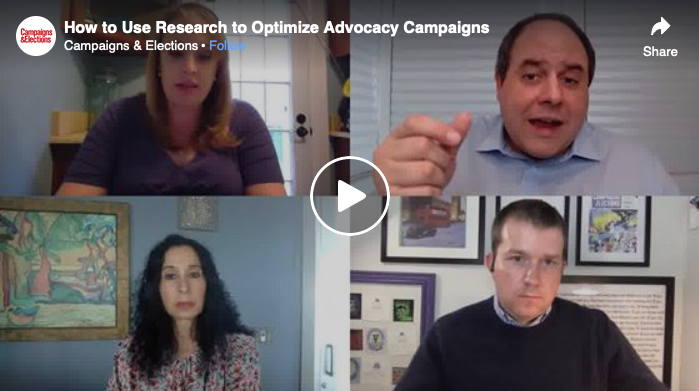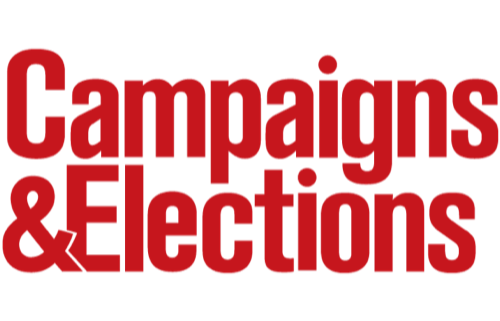Posts
LISTEN: Insights to Communicate Podcast with guest Marco Paredes, hosted by Adam Probolsky
/in News, Insights & Research/by Probolsky ResearchThis episode features Marco Paredes, attorney/lobbyist and go-to guy for Florida advocacy. We talked about how he ended up in Tallahassee, his lobbying style, and his popular weekly newsletter about the Florida legislature that he started during the pandemic – Rotunda Report.
Marco Paredes is a Shareholder and serves as the Director of Government Affairs for the law firm of Stearns Weaver Miller in Florida. Marco helps clients formulate and execute strategies to achieve their desired policy goals by advocating for their business interests and priorities before state government.
Link to episode on Apple Podcasts: https://podcasts.apple.com/us/podcast/marco-paredes/id1707096907?i=1000629543727
PRessing on in Public Relations Podcast – Guest Appearance by Adam Probolsky
/in News, Insights & Research/by Probolsky ResearchAdam Probolsky went deep on the opinion/market research – public relations/outreach nexus during the latest episode of PRessing on in Public Relations Podcast with Liselle DeGrave and Rachel McGuire.
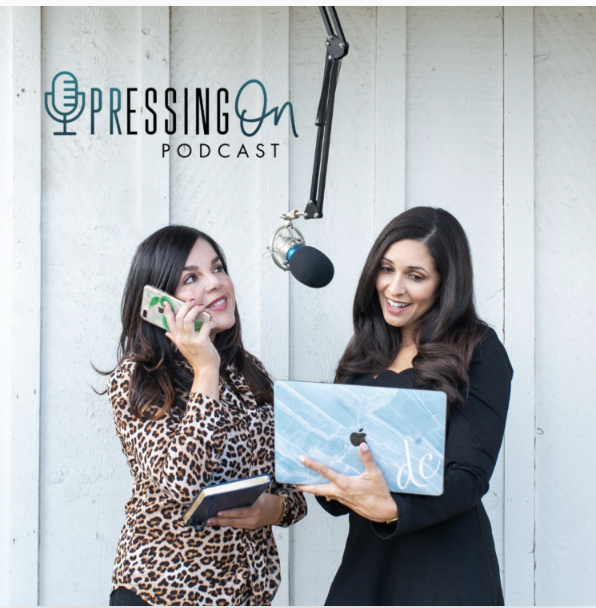
Listen here: https://www.pressingonpodcast.com/podcast/episode/2bacf575/data-data-data-benchmarking-for-strategic-success
Local Government Insights Podcast Features Adam Probolsky
/in News, Insights & Research/by Probolsky ResearchFirm president, Adam Probolsky joined the Local Government Insights podcast, episode 27, to talk about how government uses public opinion research in the process of making public policy.
Listen here:
Newsweek Covers Probolsky Research Polling
/in News, Insights & Research/by Probolsky ResearchWhat Polls Say About Newsom vs. DeSantis in Hypothetical 2024 Matchup
BY FATMA KHALED ON 9/17/22 AT 4:32 PM EDT
https://www.newsweek.com/what-polls-say-about-newsom-vs-desantis-hypothetical-2024-matchup-1743936
Republican Florida Governor Ron DeSantis would be more popular among independent and Latino voters than Democratic California Governor Gavin Newsom if they ever decide to run in the 2024 presidential election, according to recent polls.
Speculation about DeSantis’ and Newsom’s 2024 presidential ambitions has grown in recent months. On Friday, Newsom took aim at DeSantis and challenged the GOP governor to a debate.
“Hey@GovRonDeSantis, clearly you’re struggling, distracted, and busy playing politics with people’s lives. Since you have only one overriding need — attention –let’s take this up & debate. I’ll bring my hair gel. You bring your hairspray. Name the time before Election Day.@CNN,” the California governor wrote on Twitter, further fueling speculation regarding his 2024 ambitions.
In a hypothetical matchup, DeSantis beats Newsom in California where 85 percent of the state’s Republican voters would choose the Florida governor, who is also taking the lead among independents, Latinos and voters who are between 40 to 49 years old, according to a poll released by Probolsky Research on August 19 that surveyed 900 likely California voters with a margin of error of 3.3 percent.
“We have seen Newsom’s weak support among Latino voters before, most notably in his Recall Election,” said Adam Probolsky, the Probolsky Research president. “California Latinos were among the hardest hit by Covid-19 lock-downs and school closures and likely blame the governor for his handling of the pandemic.”
Though DeSantis and Newsom haven’t announced plans to run in 2024, they both appear to be positioning themselves for potentially taking part in the race. President Joe Biden and former President Donald Trump have also hinted that they will run again in 2024.
The Probolsky Research poll also showed that DeSantis is also popular among independent voters, denying Newsom majority support among that group. “To be clear, there is virtually no chance a Republican candidate for president will win California in 2024,″ Probolsky added. “But these numbers should be a warning sign for Newsom’s team as he branches out to other states trying to build a national coalition.”
In a poll by Yahoo News that was conducted between June 24 and June 27, 1,630 respondents were asked whether they would vote for Newsom or DeSantis if the 2024 elections were held today.
A total of 39 percent of respondents said they would vote for Newsom, compared to 36 percent who would choose DeSantis. Still, the Florida governor is more popular among independent voters as 38 percent of them said they would vote for him in a hypothetical presidential race as opposed to 33 percent of independent voters who would vote for Newsom.
Favorability among state residents is also something accounted for when comparing the Republican and the Democratic governors’ chances in a hypothetical matchup.
Last month, a poll by the Florida Chamber of Commerce showed that 54 percent of Florida voters approve of DeSantis’ performance as governor, with 88 percent of Republicans and 52 percent of NPAs (No Party Affiliation) approving of his job. Additionally, 65 percent of Hispanic voters approve of his performance compared to 32 percent who disapprove. The poll was conducted among 608 respondents statewide with a margin error of 4 percent.
Meanwhile, a Berkeley Institute of Governmental Studies poll released on August 23 showed that 53 percent of California voters approve of Newsom’s performance as governor, compared to 42 percent who disapprove. This is a slight improvement compared to the last poll released in February, asking voters about his job performance. The poll was conducted among 9,254 California registered voters with a sampling error of around 2 percentage points. Newsweek reached out to DeSantis’ office for comment.
WATCH: Adam Probolsky Discusses Opinion Research on Public Policy on SacTown Talks
/in News, Insights & Research/by Probolsky ResearchAdam Probolsky’s Keynote Speech to the American Water Works Association
/in News, Insights & Research/by Probolsky ResearchWEBINAR: How to Use Opinion Research in Your Advocacy Efforts
/in News, Insights & Research/by Probolsky ResearchWe were proud to partner with Campaigns & Elections Advocacy Insider on this webinar. We had a great discussion on how to use polling and other opinion research in your lobbying efforts. You can click on the video below or find the video at this link: https://www.campaignsandelections.com/videos/how-to-use-research-to-optimize-advocacy-campaigns?fbclid=IwAR01qzVssympELChFxuoNzONE0frHT_xJHkjlBLk7U6b1cyYdX8k9e25zdo
4 Reasons Not to Pause Research During the Coronavirus Crisis
/in News, Insights & Research/by Probolsky ResearchIt’s easy to find excuses not to poll or conduct focus groups.
Whether it’s Super Bowl Sunday or the Thursday before President’s Day weekend, there’s always someone on the team who thinks the timing isn’t right to survey voters. While these opinions might have merit, there’s rarely a reason to wholesale pause consumer or voter research for any extended period of time.
Even in the face of this current national crisis, we’re polling and conducting online focus groups with success. In fact, with so many people at home looking for things to do, we’re seeing an uptick in respondents’ interest and enthusiasm.
From where we sit, here’s how polling looks during the coronavirus pandemic:
Campaigns and businesses need polling right now.
Organizations need to understand the nuances of this crisis and the proper way to communicate with each audience segment. Last month, a Pew Survey found differences in how Americans assessed coronavirus risks and changed behavior based on age, political party, and state of residence.
Even when stay-at-home orders are officially lifted, we’re likely to see lingering effects based on the intensity of these early initial attitudes. Polling is the only proven way to inform your changing tactics and develop tailored messages.
Voters are answering their mobile phones and survey questions online.
Our survey response rates are up since most Americans have been “safer at home.” Participation in online focus groups is through the roof. Americans are craving social interaction and the chance to share their opinions with someone other than their dog and the echo chamber of their social media feed. The image you might have conjured in your head of people cowering in fear in their bathtub isn’t real.
If you think lonely people eager to respond to your poll will bias the results, I can assure you that boredom and loneliness have always been major motivators for survey takers – in good times and crises alike.
People will talk politics during this crisis.
We are Americans. We have three 24/7 news channels mostly dedicated to talking about politics. People who live in Arizona subscribe to the New York Times and people who live in Florida subscribe to the Washington Post. We have even somehow created a hyper-political discussion around a prescription medication that might treat a virus. Trust me, people want to talk about politics.
We’re also seeing partisan differences in how people are responding to the crisis. For example, the Pew Survey found that Republicans are more likely than Democrats to feel comfortable visiting with a friend or going grocery shopping during the crisis.
Things are changing quickly, but winging it is never a good idea.
During the Democratic presidential primary, the campaigns didn’t stop polling when a competitor dropped out. They got right back into the field with another survey to figure out how to capture undecided voters.
Unfortunately, there’s also a real possibility that the coronavirus has fundamentally altered our way of life for the foreseeable future. The 1918 Spanish flu experienced three waves, with the second wave deadlier than the first. Absent a vaccine or cure, many Americans will be wary to rush out to ball games, or family reunions.
Political campaigns, industry and government agencies need to understand how to effectively communicate during this uncertainty. For associations or down-ballot campaigns with limited research budgets, the fundamental data from a poll will remain valuable for months. It’s better to obtain that critical data now and put it to work in a way that can help guide an organization through these uncertain times.
Adam Probolsky is president of Probolsky Research, a Latina- and woman-owned independent elections and public policy research firm.
Latest Articles
AAPOR
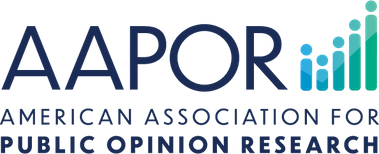
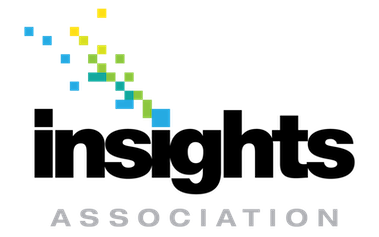
Contact Details
23 Corporate Plaza Suite 150
Newport Beach CA 92660
100 Pine Street Suite 1250
San Francisco CA 94111
1629 K Street NW Suite 300
Washington DC 20006
